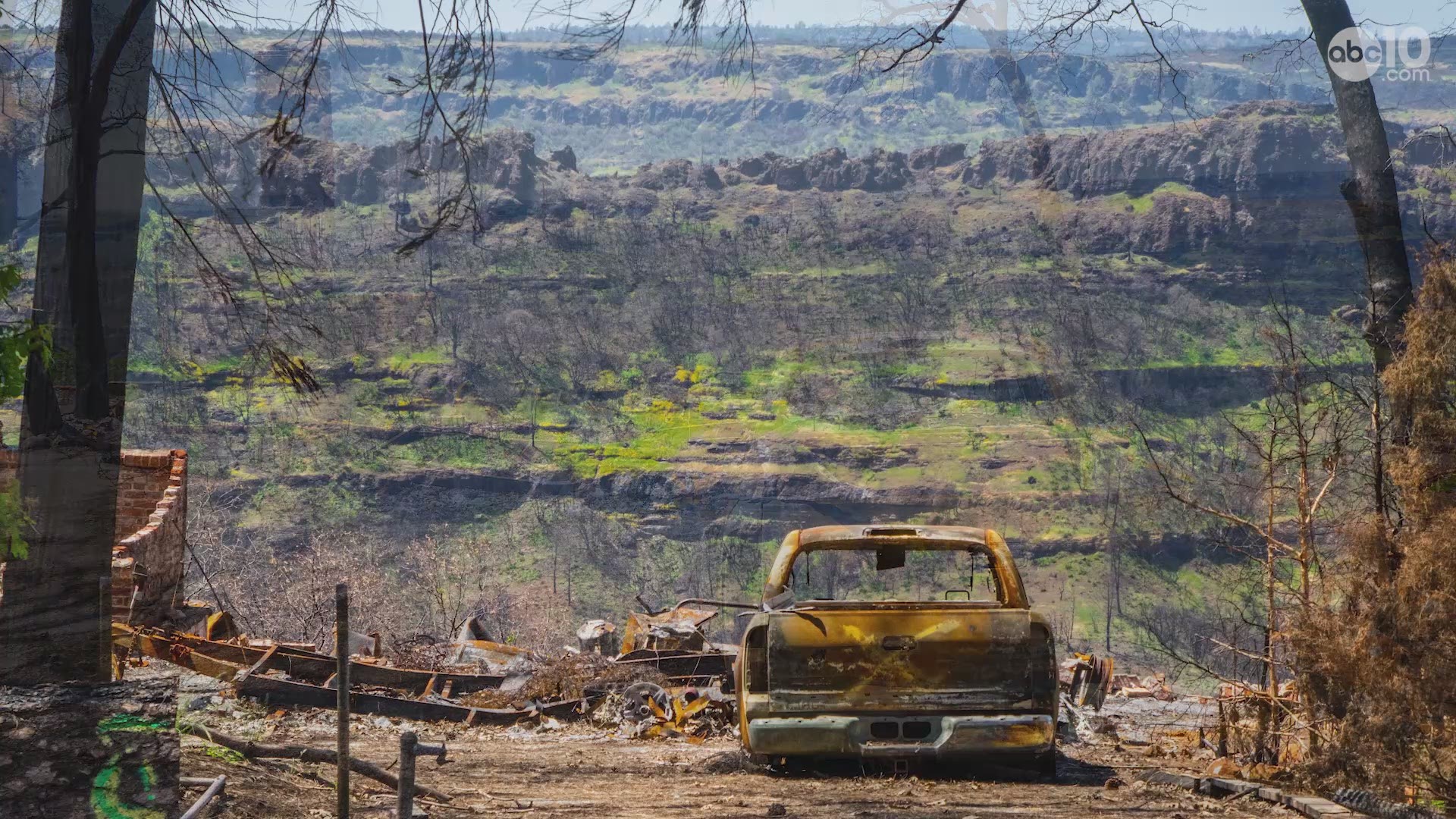SACRAMENTO, Calif. — Update:
California lawmakers have passed a bill aimed at blocking the Trump administration's efforts to weaken environmental laws.
The state Senate voted 26-14 early Saturday to send the bill to the governor's desk. The proposal would make it easier for state agencies to issue emergency regulations to counter the Trump administration's efforts to weaken federal environmental laws.
Critics say the bill will harm the state's complex delivery system of water for drinking and irrigation. But supporters say the rules are needed to curb President Donald Trump's executive actions that would harm endangered species.
Democratic Gov. Gavin Newsom has 30 days to decide whether to veto the bill, sign it into law or allow it to become law without his signature.
Original story:
For decades, California and the federal government have had a co-parenting agreement when it comes to the state's diverse population of endangered species and the scarce water that keeps them alive.
Now, it appears the sides could be headed for a divorce.
State lawmakers are working to pass sweeping legislation aimed at stopping the Trump administration from weakening oversight of longstanding federal environmental laws in California. The lawmakers want to make it easier for state regulators to issue emergency regulations when that happens.
"The state relies on the feds to regulate certain things, and the state will fill in the gaps," said Kate Poole, senior director of water for the Natural Resources Defense Council. "That's all falling apart under Trump."
The bill's fate is one of the biggest question marks heading into the Legislature's final day on Friday. It has the backing of some of the state's most powerful politicians, including Senate President Pro Tempore Toni Atkins of San Diego, while drawing opposition from the state's water contractors and Democratic U.S. Sen. Dianne Feinstein.
Atkins, through a spokeswoman, declined to comment.
"We can't really have a California system and a federal system," said Jeffrey Kightlinger, general manager of the Metropolitan Water District of Southern California, which delivers water to nearly 19 million people. "We're all in the same country here, so we need to find a way to make this work."
California has a history of blunting Republican efforts at the federal level to roll back environmental protections. In 2003, shortly after the George W. Bush administration lowered federal Clean Air Act standards, the Legislature passed a law banning California air quality management districts from revising rules and regulations to match.
More recently, after the Trump administration announced plans to roll back auto mileage and emission standards, Democratic Gov. Gavin Newsom used the state's regulatory authority to broker a deal with four major automakers to toughen the standards anyway.
State lawmakers tried this last year, but a similar proposal failed to pass the state Assembly. But advocates say several recent announcements by the Trump administration — including plans to weaken application of the federal Endangered Species Act — have strengthened support for the bill.
The bill would potentially play out most prominently in the management of the state's water, which mostly comes from snowmelt and rain that rushes through a complex system of aqueducts to provide drinking water for nearly 40 million people and irrigation to the state's $20 billion agricultural industry.
The bill would make it easier for state regulators to add animals protected under California's Endangered Species Act — animals that have historically been protected under federal law. It would then apply the state's Endangered Species Act to the Central Valley Project, a federally operated system of aqueducts and reservoirs that control flooding and supply irrigation to farmers.
But it's not clear if a state law would apply to a federal project, "which could generate years of litigation and uncertainty over which environmental standards apply," according to a letter by Feinstein and four members of the state's Democratic congressional delegation.
Plus, Kightlinger warns the proposal would disrupt complex negotiations among state and federal entities and water agencies over the Water Quality Control Plan. If all sides can sign these voluntary agreements, it would avert costly litigation that would delay environmental protections for fish and other species impacted by the water projects.
"We're pretty close. We believe we can get to completion by December. If (this bill) passes, half of the water districts pull out and go to litigation instead," Kightlinger said. "That's something that would be terrible for our ecosystem and what we're trying to achieve here."
But Poole with the Natural Resources Defense Council says that argument "is just a smoke screen."
"What is really going on is that some water agencies are counting on rollbacks of protections for endangered species," Poole said. "They don't want the state to step in."
FREE ABC10 APP:
►Stay In the Know! Sign up now for ABC10's Morning Blend Newsletter
WATCH MORE:



